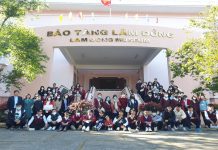Normal 0 false false false MicrosoftInternetExplorer4
st1\:*{behavior:url(#ieooui) } /* Style Definitions */ table.MsoNormalTable {mso-style-name:”Table Normal”; mso-tstyle-rowband-size:0; mso-tstyle-colband-size:0; mso-style-noshow:yes; mso-style-parent:””; mso-padding-alt:0cm 5.4pt 0cm 5.4pt; mso-para-margin:0cm; mso-para-margin-bottom:.0001pt; mso-pagination:widow-orphan; font-size:10.0pt; font-family:”Times New Roman”; mso-ansi-language:#0400; mso-fareast-language:#0400; mso-bidi-language:#0400;} table.MsoTableGrid {mso-style-name:”Table Grid”; mso-tstyle-rowband-size:0; mso-tstyle-colband-size:0; border:solid windowtext 1.0pt; mso-border-alt:solid windowtext .5pt; mso-padding-alt:0cm 5.4pt 0cm 5.4pt; mso-border-insideh:.5pt solid windowtext; mso-border-insidev:.5pt solid windowtext; mso-para-margin:0cm; mso-para-margin-bottom:.0001pt; mso-pagination:widow-orphan; font-size:10.0pt; font-family:”Times New Roman”; mso-ansi-language:#0400; mso-fareast-language:#0400; mso-bidi-language:#0400;}
A. PRONUNCIATION
I. Pick out the word which has the underlined part pronounced differently from the rest.| 1. A. Thames 2. A. chemistry 3. A. papyrus 4. A. deserve 5. A. executive 6. A. fatigue 7. A. muscular 8. A. unlock 9. A. key 10. A. salutary |
B. thistle B. stomach B. receipt B. curtain B. exercise B. mosquito B. opportunity B. until B. monkey B. regular |
C. everything
C. approach
C. campaign
C. ferment C. exemplify C. alumni C. menu C. unlike C. donkey C. stimulus |
D. South
D. mechanic
D. umpire
D. certain D. existence D. marine D. aptitude D. unjust D. kidney D. futurism |
II. Pick out the word that is stressed differently from the others in the list.
| 1. A. momentarily 2. A. honourable 3. A. substitute 4. A. journal 5. A. geologist 6. A. conscientious 7. A. conspiracy 8. A. poisonous 9. A. method 10. A. telescope |
B. partially B. intimacy B. magnetic B. experiment B. cautiously B. continuous B. contemporary B. agree B. physicist B. employee |
C. gradually C. participate C. refusal C. treatment C. athletics C. delicious C. contradictory C. transmit C. magazinist C. obvious |
D. decisive D. interviewer D. unpleasant D. surgery D. delight D. malicious D. consistency D. procession D. develop D. pharmacist |
B. VOCABULARY AND GRAMMAR:
I. Choose the one word or phrase that would not be appropriate.
1. Once learned (A), we cannot easily (B) forget (C) a language (D).
2. There (A) was a hasty called (B) meeting to discuss (C) the bus strike (D).
3. The (A) girls look adorably (B) in (C) their party (D) costumes.
4. Bob should (A) not (B) have bought (C) these pair of shoes (D).
5. There was so much (A) policemen at the (B) football game that (C) there was no (D) trouble.
6. Passengers are requested (A) to wait (B) at gate (C) the fifth (D).
7. The (A) garden is as beautiful like (B) the one (C) in (D) the park.
8. Since (A) there were two possible (B) ways to get to New York, we had to decide which one (C) was good (D).
9. The customs (A) in his country (B) are more traditional (C) than that (D) in the United States.
10. They had (A) a real good chance (B) of winning (C) the national competition (D).
II. Choose the word or phrase that has the same meaning or that best completes each sentence:
1. The temperatures _______________ take place vary widely for different materials.
A. at which melting and freezing B. which melting and freezing
C. which they melt and freeze D. at which they melt and freeze
2. The light from an electrical lamp includes many different wave lengths, _______________ in a laser is concentrated on only one wave length.
A. all the energy B. it is all the energy C. while all the energy D. while all the energy is
3. Bats avoid running into objects by _______________ high-frequency sounds and listening for echoes.
A. emitting B. emitted C. the emission D. they emit
4. One problem with all languages _______________ they are full of irregularities.
A. when B. so C. in case D. is that
5. The musical instrument _______________ is six feet long.
A. is called the bass B. called the bass C. it is called the bass D. calls the bass
6. The sky is getting cloudy. It _______________ rain.
A. looks B. looks like C. seems to D. will be
7. Would you do me a favour? I _______________ very much.
A. appreciate it B. would appreciate C. would be appreciative D. would appreciate it
8. I am familiar with the Grand Hotel. I don’t know _______________ times. I’ve been there.
A. how many B. how often C. how much D. many often
9. “When_______________ leave for Washington, D.C.?” “We are planning to leave at 8 o’clock.”
A. are we B. will we C. will us D. are us
10. I asked Tom when he could finish his homework. He said that he would finish it_______________ .
A. as much as possible B. as possible as he could
C. as fast as he could possibly D. as soon as possible
11. – “Do you know_______________ that woman is?” – “I would say that she is at least sixty.”
A. old B. how age C. how old D. which age
12. The conductor told us that the train would arrive _______________ .
A at eight thirty B. at eight thirty o’clock C. in eight thirty D. in eight thirty o’clock
13. – “How _______________ a crowd had gathered at the movie theater?” – “I don’t know exactly, but there were a lot of people.”
A. large B. often C. many D. much
14. I can point out Mr. Johnson even in a large group. He is the man_______________ long beard.
A. on the B. in the C. with the D. for the
15. – “Where shall I put this suitcase?” – “Why don’t you_______________ it on the shelf?”
A. hang B. deposit C. sit D. put
16. I have heard your views on the tax reform. Let me_______________ .
A. express my opinion B. express my viewing C. make my views D. make my opinion
17. – “When are these assignments due?” – “The professor told us that they must be turned in ______________.”
A. by Friday B. until Friday C. Friday before D. Friday beginning
18. They are visiting the Rockies. I hear the Rockies have_______________ .
A. beautiful scenery that is much B. many beautiful landscapes
C. many beautiful sceneries D. much beautiful scenery
19. – “Where is ABC Store?” – “It is_______________ the apartment house.”
A. before B. ahead of C. in front of D. preceding
20. Most ski resorts are crowded. There are many people _______________ skiing.
A. enjoy B. that enjoying C. who enjoy D. who enjoying
III. Choose the suitable one:
1. Since I came in half an hour later this morning, I have to stay until 5:30 to__________ for it.
A. save up B. make up C. keep up D. hold up
2. I deposited 10,000 yen every month for three years and __________ enough money to go the United States.
A. saved up B. made up C. kept up D. held up
3. Would you turn__________ the TV? I’m afraid the baby will wake up.
A. off B. on C. up D. over
4. We will__________ the picnic, since it started raining.
A. put off B. take off C. turn off D. brush off
5. Most of our customers__________ their meals rather than eating here.
A. take out B. take back C. take in D. take off
6. I__________ my old friend when I was shopping downtown yesterday.
A. came around B. ran into C. stopped by D. dropped in
7. May I__________ this suit? It if fits, I’ll buy it.
A. try on B. put on C. pull on D. get on
8. I quit my job because I could not__________ with my boss.
A. get up B. make up C. take up D. put up
9. Sorry, but that book is __________ .We’ll get some copies from the publisher next Monday.
A. out of print B. out of order C. off shelf D. out of stock
10. The new policies brought __________ many changes in our company.
A. about B. down C. out D. up
C. READING
I. Fill in each blank with the most suitable word
Learning any (1) …………………………. involves four different skills: speaking, understanding, reading, and writing. If you understand a (2) …………………………. language, and can make (3) …………………………. understood in speech and writing, you have mastered it.
(4) …………………………. language is easy or difficult in itself. The (5) …………………………. or difficulty of any language depends on the age of the person (6) …………………………. it. Before the age of 10, all languages are (7) …………………………. easy when learned (8) …………………………. the natural speaking method (listening and imitating). After 10, learning a language becomes (9) …………………………. difficult. Therefore, it is desirable to learn foreign languages as early as (10) ………………………….. Some schools start foreign language instruction in kindergarten or in the primary grades.
II. Read the following passages and the questions that follow them. Then decide which of the choices (A), (B), (C), or (D) best answers the question.
Questions 1 – 5 – Only humans have a spoken, symbolic language; scientists have long thought that nonhuman primates had much less sophisticated communication systems. True, but chimpanzees use gestures and many voice sounds in the wild, while other apes use sounds to communicate territorial information. Chimpanzees seem to have a natural talent for learning symbolic language under controlled conditions. A famous chimpanzee named Washoe was trained to communicate with humans using no less than 175 sign language gestures similar to those of the American Sign Language. After more than a year Washoe could associate particular signs with activities, such as eating and drinking.
Another chimpanzee named Sarah was taught to read and write with plastic symbols and acquired a vocabulary of 130 different words, to the extent that she obeyed sequences of written instructions given with the symbols. But such experiments in communication with primates are a far cry from the versatility and grace of human speech.
1. According to the passage, all of the following are true of chimpanzee communication EXCEPT
A. it is less sophisticated than human language B. it is observable in the wild
C. it uses gestures D. it is as versatile as human communication
2. The passage states that the ability of chimpanzees to learn symbolic language in certain situations is due to
A. their territoriality B. their use of gestures and voice sounds in the wild
C. their natural talent D. their use of the American Sign Language
3. According to the passage, the chimpanzee Washoe
A. was able to associate some signs with activities after a year B. used fewer than 175 signs to communicate
C. was fluent in the American Sign Language D. could read and write
4. The passage states that Sarah’s ability to read and write was judged by
A. the size of her vocabulary
B. her dexterity in using the plastic symbols
C. her obedience to instructions given in the symbol language
D. the number of symbol sequences that she could manipulate
5. According to the author, spoken, symbolic language is
A. not a sophisticated communication system B. only available to humans
C. shared by both humans and chimpanzees D. similar to the language used by chimpanzees.
Questions 6 – 10 – Ever since humans have inhabited the earth, they have made use of various forms of communication. Generally, this expression of thoughts and feelings has been in the form of oral speech. When there is a language barrier, communication is accomplished through sign language in which motions stand for letters, words, and ideas. Tourists, the deaf, and the mute have had to resort to this form of expression.
Many of these symbols of whole words are very picturesque and exact and can be used internationally; spelling, however, cannot.
Body language transmits ideas or thoughts by certain actions, either intentionally or unintentionally. A wink can be a way of flirting or indicating that the party is only joking. A nod signifies approval, while shaking the head indicates a negative reaction.
Other forms of non-linguistic language can be found in Braille (a system of raised dots read with the fingertips), signal flags, Morse code, and smoke signals. Road maps and picture signs also guide, warn, and instruct people. While verbalization is the most common form of language, other systems and techniques also express human thoughts and feelings.
6. Which of the following best summarizes this passage?
A. When language is a barrier, people will find other forms of communication.
B. Everybody uses only one form of communication.
C. Non-linguistic language is invaluable to foreigners.
D. Although other forms of communication exist, verbalization is the fastest.
7. Which of the following statements is not true?
A. There are many forms of communication in existence today.
B. Verbalization is the most common form of communication.
C. The deaf and mute use an oral form of communication.
D. Ideas and thoughts can be transmitted by body language.
8. Which form other than oral speech would be most commonly used among blind people?
A. picture signs B. Braille C. body language D. signal flags
9. How many different forms of communication are mentioned here?
A. 5 B. 7 C. 9 D. 11
10. Sign language is said to be very picturesque and exact and can be used internationally except for ____________.
A. spelling B. ideas C. whole words D. expressions
D. WRITING
“When people succeed, it is because of hard work. Luck has nothing to do with success.” Do you agree or disagree with the quotation above? Use specific reasons and examples to explain your position.
…………………………………………………………………………………………………………………….…
…………………………………………………………………………………………………………………….…
…………………………………………………………………………………………………………………….…
…………………………………………………………………………………………………………………….…
…………………………………………………………………………………………………………………….…
…………………………………………………………………………………………………………………….…
…………………………………………………………………………………………………………………….…
…………………………………………………………………………………………………………………….…
…………………………………………………………………………………………………………………….…
…………………………………………………………………………………………………………………….…
…………………………………………………………………………………………………………………….…
…………………………………………………………………………………………………………………….…
…………………………………………………………………………………………………………………….…
…………………………………………………………………………………………………………………….…
…………………………………………………………………………………………………………………….…
…………………………………………………………………………………………………………………….…
…………………………………………………………………………………………………………………….…
…………………………………………………………………………………………………………………….…
…………………………………………………………………………………………………………………….…
…………………………………………………………………………………………………………………….…









